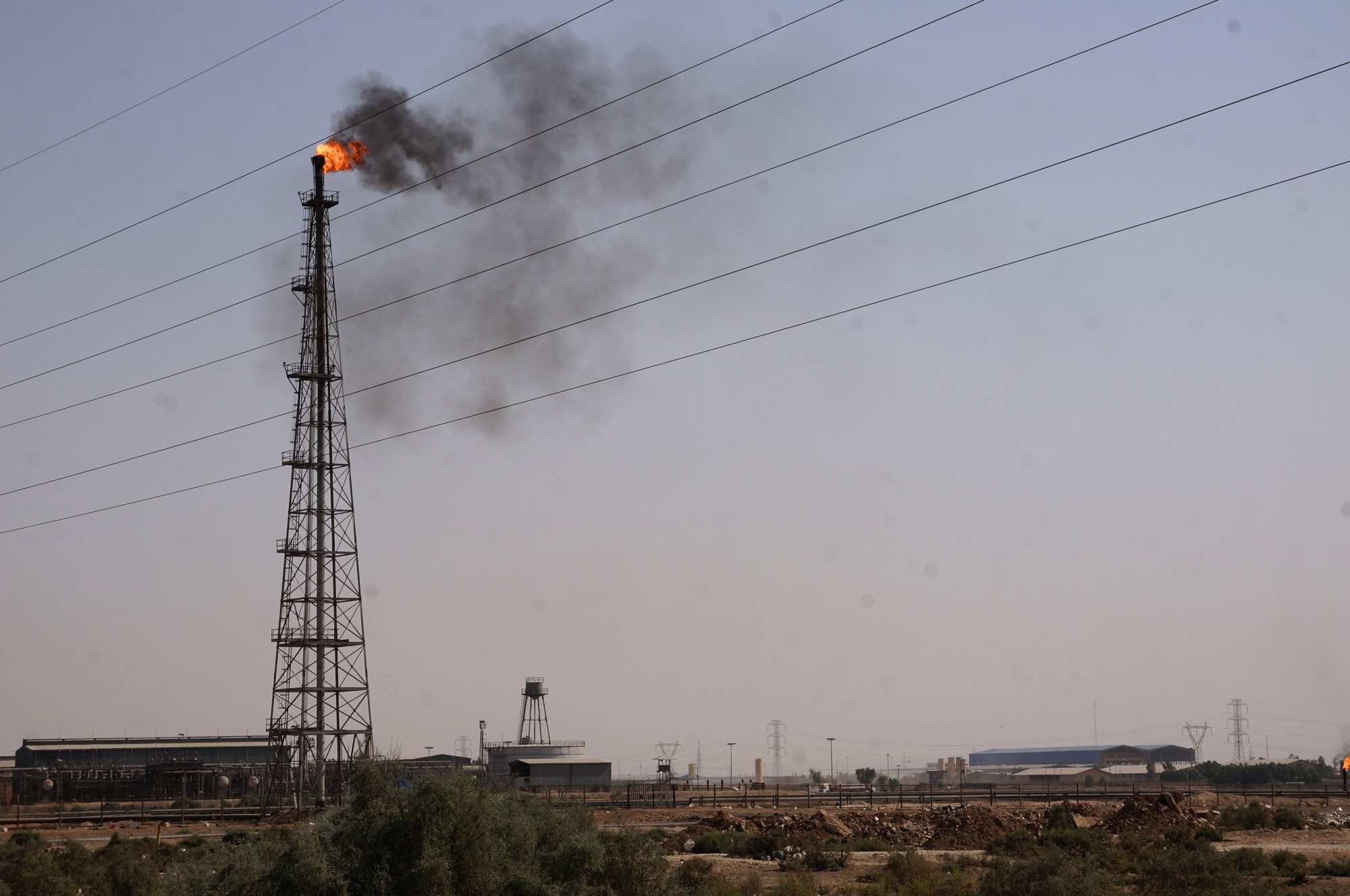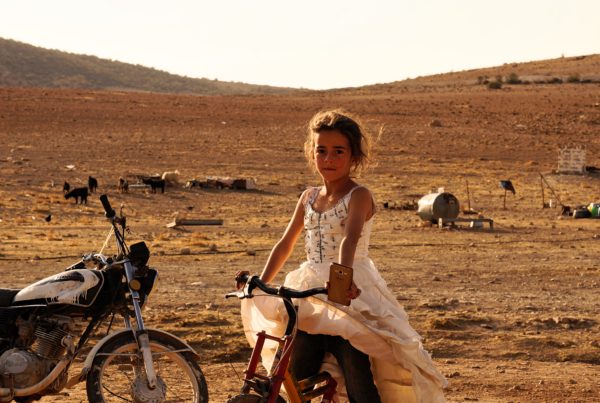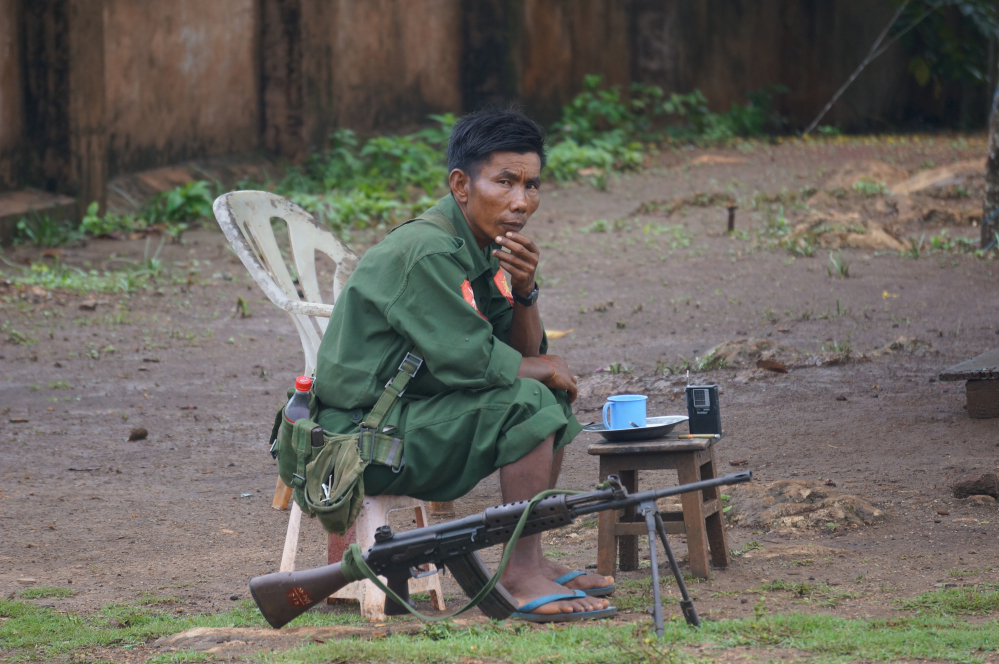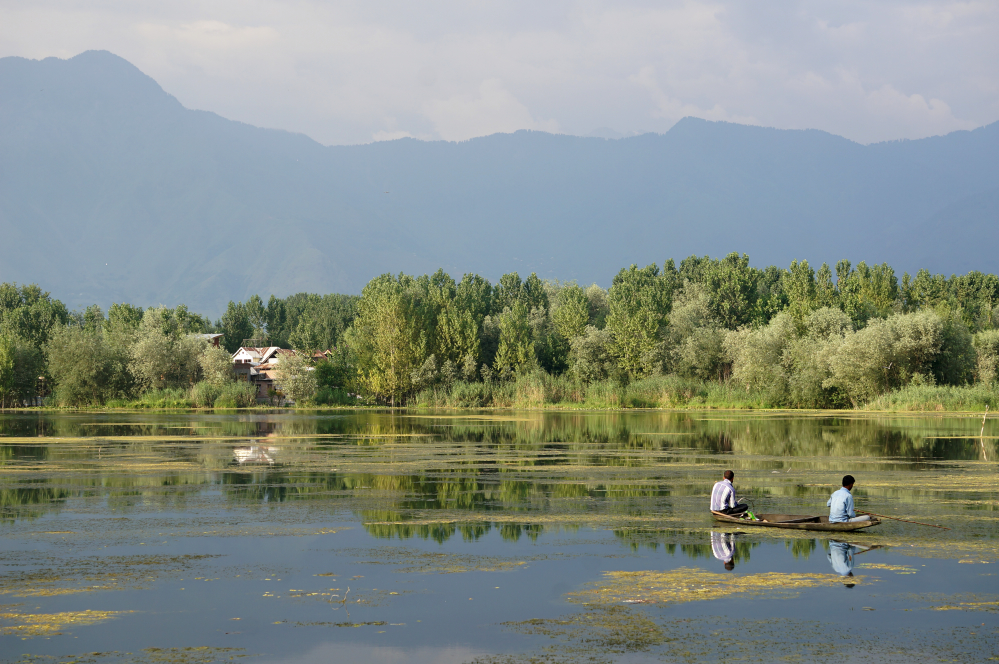The city of Ahvaz is situated in Khuzestan province, the Arab-majority region of southwestern Iran that borders Iraq. The majority of Iran’s 2.5 to 5 million ethnic Arabs live in Khuzestan province. Ahvaz is located in the middle of the desert and is surrounded by oil and gas reserves. I arrived by bus from Shiraz to a landscape dominated by pipelines and oil drills topped with plumes of fire. The air was polluted and stiflingly hot which created an eternal grey shimmering haze on the skyline. During summer the temperature can reach over fifty degrees celsius. I was told that people get nose bleeds because it’s so hot and that during Ramadan people aren’t supposed to drink water; if they are caught drinking they could be arrested by the religious police. I was not surprised to later find out it is one of the world’s most polluted and hottest cities.
I was invited to Ahvaz by a friend of mine to stay with an Iranian family. The family members who were not working spent their days indoors because it was too hot to go outside. At night, we cruised around the streets; heading to restaurants to smoke tobacco pipes. Even then it was too hot. All I wanted to do was take my shirt off and jump into a pair of Speedos, and I didn’t have to wear a piece of fabric around my head. The women rarely left the house and when they did it was with a male escort. One of the women didn’t know the streets around her house. She’d spent her 23 years of life more or less inside her own home.
One of the family members was Saeed (name changed). He was formerly detained on Manus Island but ‘voluntarily’ returned to Ahvaz. Currently, Iran is not willing to accept its nationals being forcibly deported from Australia, but it will welcome back citizens who return of their own free will. The Australian government’s deterrence policies can coerce Iranians seeking asylum to ‘voluntarily’ return to Iran without having their claim for protection assessed. Saeed told me that the International Organisation for Migration (IOM) offered Iranian asylum seekers on Manus Island US$3,300 to return voluntarily to Iran but no-one took the offer. When IOM improved the offer to US$7,000 he took the package. Human Rights Watch reported other people’s claims of the same nature. Saeed said the amount didn’t cover the cost of paying people smugglers to get to Australia but many had lost hope on Manus Island. IOM flew him back to Iran and, according to him, offered no other help. He was interrogated at the airport for four hours and released. Saeed believed that the Iranians left in Manus Island are refugees, otherwise they would have returned home already.
Many of the asylum seekers I have met in Australia are indigenous Iranian Arabs from Ahvaz. They claim Iranian Arabs are restricted in work opportunities and that the billions made from oil production in the region isn’t reinvested in the Arabic community. They claim their land, particularly in Khuzestan, suffered heavy damage during the Iraqi invasion but wasn’t returned to its pre-war state. In 2005, the Iranian government brutally suppressed a peaceful protest against forced displacement, discrimination and persecution of the indigenous Arabs of southwest Iran. Following the protests, a number of bombs were detonated in Ahvaz which killed 28 people. The Iranian government executed five Arab separatists in relation to the crimes. Since then, the anniversary of the protest “has become an annual ritual of violent repression” according to Huffington Post.
I have found it very difficult to understand and discuss Iranian politics, particularly when it comes to government persecution. There are numerous ethnic groups in Iran who claim discrimination and persecution at the hands of the Iranian government, such as the Baluchis and the Khavaris. Every Iranian I talk to has a different opinion on what’s really happening in the country. I’m in no position to assess the allegations made by Iranians Arabs, but judging from the state of Ahvaz, I can understand why people would want to leave.
From Ahvaz, I travelled to Kermanshaw in Iranian Kurdistan. I was invited to stay with the family of a man I knew who was detained in Nauru. The family offered to pay for everything (and I mean everything) with no expectation of refund. There was no question of Tahrof; I tried to pay but they wouldn’t let me. They tried to give me presents, they even tried to buy my presents to my family for me. Thankfully, I managed to pay for them myself and refuse most of the gifts offered to me.
I was invited to a Kurdish Zoroastrian wedding celebration. The party was held the day before the wedding. The whole family was there, except the bride. There was line dancing, handkerchief tossing, tobacco pipes, tea, meat on a spit, and the old men smoked opium in the corner.
Many of the asylum seekers I worked with in Australia were Kurdish Iranians. I tried to meet two Kurdish friends who had returned to Iran without having their refugee protection claims heard in Australia. One man was unable to meet me because he was in France seeking asylum. The other man, who had returned to Iran after suffering severe mental health issues and attempting suicide several times in detention, had disappeared and was not contactable.
There are 7 million Kurds who live in Iran who are mostly Sunni Muslims, but the global population of Kurds is more than 30 million, largely spread across Iraq, Iran, Syria and Turkey. There is no internationally recognised sovereign Kurdish state. Once again, trying to understand the Kurdish situation in Iran is extremely complex. Within the Kurdish ethnic group there are different sub-groups, such as the Feyli Kurds who are subjected to different treatment by the Iranian government.
I talked to local people and experts about Kurdish claims of persecution and there was a lot of disagreement. Many Iranians I talked to believed Kurds are discriminated against but not persecuted and pointed to the fact that Kurds are allowed Iranian citizenship, they can work, marry, get passports and travel, and are permitted expressions of Kurdish culture.
In contrast, Amnesty International reports extensively on discrimination and persecution of Kurdish Iranians:
“Kurds in Iran have long suffered deep-rooted discrimination. Their social, political and cultural rights have been repressed, as have their economic aspirations. Kurdish regions have been economically neglected, resulting in entrenched poverty. Forced evictions and destruction of homes have left Kurds with restricted access to adequate housing.”
The Amnesty International report states that members of the Kurdish independence movement and human rights movement have been imprisoned due to their political activism. Kurdish politicians are blocked from participating in Iran’s political process; have been the targets of political assassinations by the government; and members of Kurdish political groups are subjected to arbitrary detention, torture and execution. It appears that in the Kurdish case, the line between discrimination and persecution is crossed when Kurdish people become politically active.
From Kermanshaw, I made my way back to Tehran and then I flew home to Australia. I left Iran with a greater understanding of the people and the country; however, I am well aware that I barely scratched the surface of one of the most complex and confusing countries I’ve ever visited. Iran is portrayed or perceived as a dangerous country, but my experiences as a tourist in the country were safe and enjoyable. The people’s openness in welcoming foreigners into their homes and providing the utmost level of hospitality was humbling.
It was clear that many people were unhappy with their current government and were desperate to leave for a variety of reasons. Many ethnic, religious and social groups within Iran claim to be discriminated against or persecuted by the Iranian government. Economic sanctions have crippled the country’s economy, no doubt contributing to people’s desire to escape. I met vibrant, young Iranians who felt suppressed by what they called a repressive theocracy. They told me they wanted to leave, but were restricted by their inability to acquire visas and travel legally. This made them feel trapped within their own nation.
As much as I enjoyed my time as a tourist in Iran, it was clear that there are many unresolved political issues that are giving people cause to leave the country in search of brighter futures.



